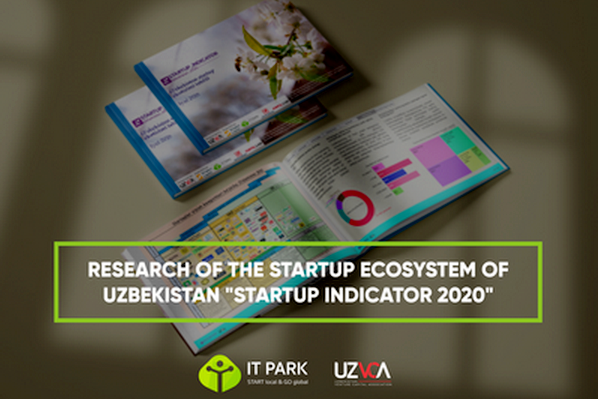According to the study “Uzbekistan Startup Indicator 2020” conducted by the Association of Venture Investment of Uzbekistan with the support of the investment fund “Sturgeon Capital”, IT Park Uzbekistan, JSCB “Universal Bank” and the law firm “Centil Law”, startups in Uzbekistan are more focused on the development of financial, medical and educational technologies.
Measuring the indicators of technological entrepreneurship in Uzbekistan this year has a special meaning. A pandemic that has affected all areas of business in one way or another will inevitably affect startups. Someone thinks that they will begin to close massively in the near future, someone thinks that the real sector of the economy will require the introduction of innovations, so the interest in startups will become more professional. One way or another, the main goal of the study is to help startups, investors, representatives of venture capital funds and the state to better understand the needs and vision of startups in Uzbekistan.
As part of the study, experts interviewed more than 120 founders of innovative start-ups in Uzbekistan: how much does the company earn, where it looks for investments, what product it develops, is it going to enter foreign markets and whether it receives support from development institutions.
Also, the startup infrastructure of Uzbekistan was investigated in the context of 5 categories: Entrepreneurial education; Support for startups from the conception of the idea to the market launch; Capital offered; Networking; Expertise.
The study showed that Uzbekistan has sufficiently good conditions and human resources for the creation of innovative technological enterprises with high added value:
– there are both state support programs (IT Park Startup programs, CAT Accelerator, Startup Initiatives, Youth Support Centers, University start-up incubators, etc.), and private incubation, acceleration programs (IdeaLab, Startup Factory, IdeaThon, GameDev, WomenInTech, WVA and others), as well as coworking centers (Ground Zero, C-Space, etc.);
– 80% of founders are young people under 30 with higher education, most of them are aimed at the B2B sector;
– despite the situation with Covid-19, most of the surveyed novice founders plan to grow, and 93% plan to attract new employees in the near future;
– Startups develop most of all in the FinTech, Medtech, EduTech industries and 50% of them have positive experience in launching a previous startup;
– 70% of the surveyed startups have a minimum viable product, generate an annual revenue of more than US$10,000, and more than half of the respondents have gone through various acceleration programs, hackathons, contests;
– more than 85% of respondents have a majority stake in the project and need capital for further development in the amount of less than US$50,000.
However, the study also illustrated the challenges that founders face in developing their business:
– more than half (89%) noted the lack of the proposed capital for development, as well as the lack of interest of large companies in cooperation with startups, which complicates the scalability of the business;
– along with capital, founders need entrepreneurial experience (smart capital) and noted the small market of qualified specialists (programmers, marketers);
– the bulk of startups are aimed at the domestic market and less than 10% of start-up projects are planning to enter global markets;
– the balance of gender distribution of co-founders of projects is much less than in technologically developed countries.







